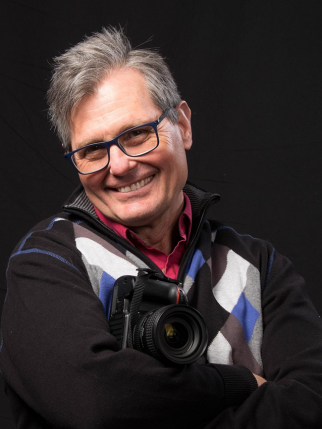
Michael Swan, The Catholic Register
Michael is Associate Editor of The Catholic Register.
He is an award-winning writer and photographer and holds a Master of Arts degree from New York University.
Follow him on Twitter @MmmSwan, or click here to email him.
Catholic boards’ hands tied by Bill-13
TORONTO - Catholic schools will remain welcoming places for all students in full accord with the Accepting Schools Act and Catholic teaching and tradition, said Cardinal Thomas Collins in a statement released June 5 after Bill-13 passed third reading to become law.
Passage of the bill means Catholic schools must allow gay-straight alliance clubs if requested by students.
TORONTO - Opponents of Bill-13 lost the debate over gay-straight alliances because they seemed either fearful or contemptuous of the word gay in presentations at committee, said NDP and Liberal legislators during debate at final reading of the Accepting Schools Act.
“We know that homophobia is real. The committee hearings proved it is real,” said NDP MP Cheri DiNovo.
Residential schools are relevant to all Canadians
TORONTO - “Canadians from before have done a great disservice to Canadians who are new by not telling the story, the true story of this country,” said Estella Muyinda.
Muyinda was born in Uganda. Today she is a lawyer and just as thoroughly Canadian as everybody else in line at Tim Horton’s — and more than some. She’s spent time in Inuvik and Tuktoyuktuk in the Northwest Territories. In travelling the country she has learned about the first of Canada’s three founding nations.
TORONTO - While residential school survivors told their life stories of trying to piece together family life after childhoods spent in an institution, Hilton Henhawk held a brush above canvass.
As an artist trained at the Ontario College of Art in Toronto and an elder in his own right, Henhawk was seeking a picture of native culture and identity that transcends the residential school experience without forgetting the harm his people have suffered.
"It's got to be representative of the native as a whole," Henhawk told The Catholic Register as he began to paint an ideal chief — a leader who could embody the spirit of his people.
The Ontario government respects the constitutional rights of Catholic education and is committed to its continuation, said Education Minister Laurel Broten.
Speaking to The Catholic Register in the wake of Cardinal Thomas Collins calling the Liberal's amended version of Bill 13 an infringement on religious freedom, Broten also rejected calls from some politicians and media for a single, secular education system.
"I've been very clear," she said. "The premier's been very clear. We respect the constitutional protection of Catholic education and that conversation is not on the table."
The bitter history of Canada's attempt to wipe out aboriginal culture through a system of Church-run schools has come to Canada's largest and most invisible Native community — and it's biggest city.
The Truth and Reconciliation Commission of Canada is meeting with 600 delegates, including about 100 residential school survivors, in downtown Toronto at a May 31 to June 2 community-organized event called The Meeting Place, a name that freely translates the Mohawk word ktaronto, which eventually became the name of the city. There are about 80,000 aboriginal Canadians — Metis, Indian and Inuit — living in Toronto.
Freedom of conscience has deep religious roots
Rarely is St. Thomas Aquinas a hot topic. The 13th century Angelic Doctor has been out of the news for some time.
But when Canada’s bishops recently issued a pastoral letter to remind “men and women of good will” about the centrality of conscience to the very idea of freedom, they were channelling St. Thomas via two of the Second Vatican Council’s most important declarations — Gaudium et Spes and Dignitatis Humanae.
Issued on May 14, the bishops Pastoral Letter on Freedom of Conscience and Religion defends the right of religious freedom and expression in the public square while affirming the right of conscience and conscientious objection. It urges believers to never compromise their faith “even if they must suffer for it.”
The Canadian Council of Churches has questions and it has plans. The questions are for the government and its plans are for Canada’s Christians.
As the CCC executive committee elected new officers, including the first Salvation Army president in the Council’s 68-year history, it also trekked to Parliament Hill to ask politicians and bureaucrats about environmental policy and plans for an Office of Religious Freedom within the Department of Foreign Affairs and International Trade.
“We went there knowing there are issues on the horizon that we would like to ask questions about and simply learn more about,” said CCC general secretary Rev. Dr. Karen Hamilton.
Pax Christi still trying to drum up national support
TORONTO - The dream of a cross-country Canadian Pax Christi organization is alive in Toronto, but struggling to find a foothold elsewhere.
Since the Toronto group of about 30 dedicated peace activists won the right to be called Pax Christi — Toronto it has received all kinds of inquiries about its work, but the group has struggled to translate that interest into membership.
“We’re getting more people interested,” said founding member Deacon Steve Barringer.
Early in his philosophy career, Professor Tom Langan was fired for being too left wing. Years later he helped found the Canadian Catholic Civil Rights League, an organization often called reactionary.
Langan died May 25 at Bridgepoint Hospital. For the last five months of his life at Bridgepoint, Langan was surrounded by family, friends and former students.
He was fired in the 1950s by his Jesuit-founded alma mater, St. Louis University. But Langan wasn’t unemployed long. Indiana University took him on and he eventually rose to chair of the philosophy department.

